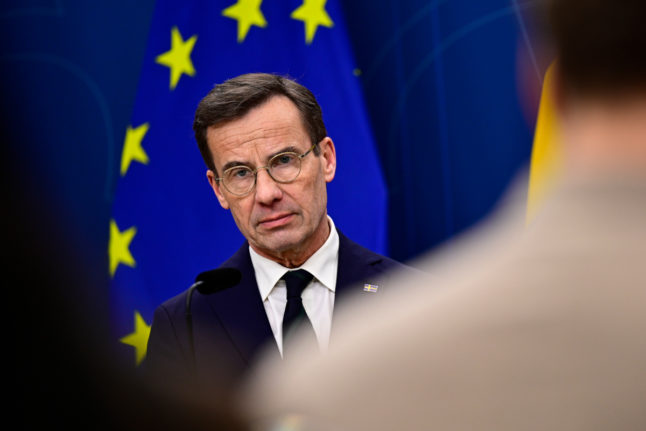Sweden on Monday cleared the final hurdle to become the 32nd member of the alliance, when last holdout Hungary’s parliament ratified the Nordic country’s membership.
“Russia will take countermeasures of a political and military-technical nature in order to minimise threats to its national security,” the embassy said in a post on Telegram.
It added that their “concrete content” would depend on the extent of Sweden’s integration into Nato, “including the possible deployment in this country of Nato troops, military assets and weapons”.
Sweden dropped two centuries of military non-alignment in applying for Nato membership alongside Finland in the wake of Russia’s invasion of Ukraine.
“It is a sovereign matter for Sweden to choose its security policy. At the same time, the country’s entry into a military alliance hostile to Russia will have negative consequences for stability in Northern Europe and around the Baltic Sea, which remains our common area,” the Russian embassy said in its post.
It stressed that the Baltic would never be a “Nato lake” as some observers have dubbed it. Sweden’s accession means that all the countries bordering the Baltic Sea, except Russia, are now Nato members.
It’s not the first time Moscow has threatened “political and military-technical” measures in response to Nato enlargement, which it also did when Finland last year joined the alliance.
Experts have previously interpreted it as for example moving military units and infrastructure, and increasing military exercises.
Swedish Prime Minister Ulf Kristersson on Wednesday played down Russia’s comments.
“It is well known that Russia doesn’t like that Sweden or Finland become Nato members, but we choose our own paths,” he told Swedish news agency TT.




 Please whitelist us to continue reading.
Please whitelist us to continue reading.
Member comments